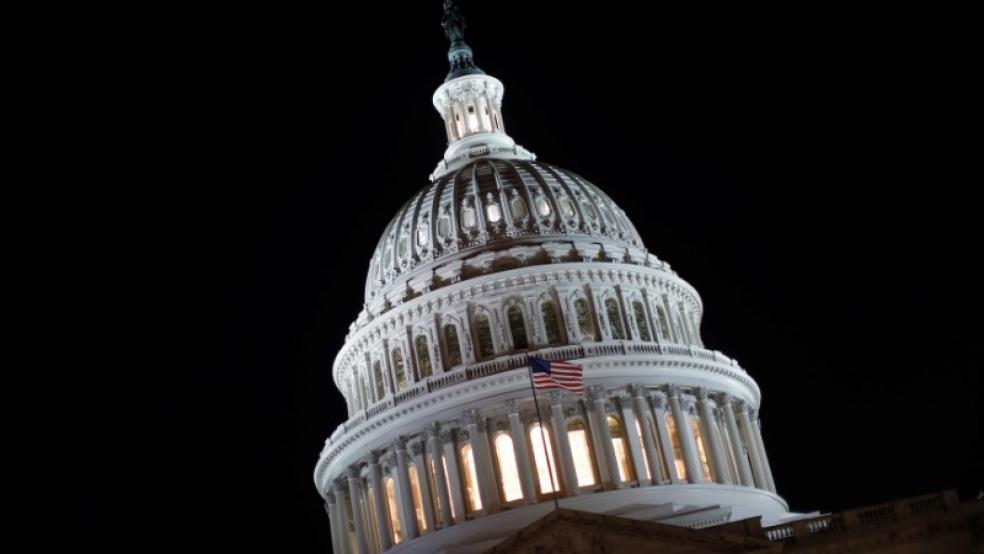By threatening the subsidized health insurance of members of Congress if they fail to pass legislation to repeal the Affordable Care Act, President Trump may be playing a shrewd political hand as he tries to advance his tattered agenda while winning points with his anti-government base.
Congress has an even lower approval rating than the president, and lawmakers frequently have been criticized for putting themselves above the legislation they pass. In the case of Obamacare, lawmakers ended up with gold-plated coverage and a hefty government subsidy of roughly 75 percent of the monthly premium thanks to some deft maneuvering by Congress.
Related: How Trump Could Still Win the Health Care Fight
But in targeting something as personal as lawmakers’ family health insurance coverage, Trump is risking an angry backlash from Capitol Hill just when he needs lawmakers support to pass major tax reform, boost spending for defense and construction of a wall on the southern border, and revive GOP health care reform before the end of the year.
This is especially true now, following a tumultuous week of administration blunders, including Trump’s attacks on Attorney General Jeff Sessions, the shockingly vulgar outbursts of the new White House communication director, and the collapse of a seven-year GOP effort to replace Obamacare.
Over the weekend, Trump lashed out at members of the GOP-controlled Congress for looking like “fools” and warned of retribution against insurance companies and lawmakers unless Congress passes overhaul legislation. “If a new HealthCare Bill is not approved quickly, BAILOUTS for Insurance Companies and BAILOUTS for Members of Congress will end very soon!” Trump tweeted.
Trump was taking aim at an $8 billion annual cost-sharing subsidy for insurers that reduce co-payments for low income consumers and the generous premium subsidy for lawmakers’ health insurance.
Related: Why Congress Goes for the Gold When They Sign Up for Obamacare
The president was at it again on Monday, complaining that Obamacare is “hurting people” and questioning why Congress shouldn’t be paying a similar price.
Joseph Antos, a health care expert with the conservative-leaning American Enterprise Institute, said in an interview Monday that he considers Trump’s warning to lawmakers largely “an empty threat,” although “If he really tried to take action along this line, one would find considerable pushback by Republicans and Democrats.”
Antos also said that “this is a typical kind of Donald Trump campaign claim which sounds good to a crowd at a football stadium but there isn’t much behind it in terms of how you would do it, or in terms of getting cooperation from Congress.”
Mick Mulvaney, the director of the Office of Management and Budget, insisted that Trump is dead serious about going after lawmakers’ insurance subsidies as well as insurance industry “bailouts.”
Under the current arrangement, members of Congress can choose a gold-level Obamacare policy and receive federal subsidies that cover 72 percent of the cost of the premium. If the ACA were repealed, lawmakers could return to their previous, highly generous health insurance program – with comparable subsidies -- under the Federal Employee Health Benefits system.
Related: Price Says Eliminating the ACA’s Individual Mandate Is Trump’s Top Priority
As originally conceived as part of the 2010 Affordable Care Act, members of the House and Senate and many of their staffers were required to move from the federal system to the health-care exchanges in the District of Columbia.
Both GOP and Democratic congressional leaders complained about having to leave a highly generous federal health insurance program that picks up 70 percent of the insurance premium for a new system in which their incomes were too high to qualify for subsidies.
To appease lawmakers, the Obama administration quietly made an exception and created a carve-out for members of Congress and their staffs – a change that was ratified in 2015 as part of a congressional waiver.
Instead of requiring lawmakers and staffers to sign up for coverage on the D.C. Obamacare exchange, the Office of Personnel Management allowed them to use the D.C. small business exchange to receive health care stipends.
The little-known Small Business Health Options Program is a health insurance market for small employers seeking to provide affordable health insurance to their employees. But in order to use the marketplace, an employer cannot have more than 50 full-time employees.
Related: The Health Care Fight Isn't Over, Despite Democratic Cheering
The administration circumvented that requirement by allowing individual congressional offices to be counted as small businesses of 50 or fewer employees. What’s more, lawmakers and staffers who chose this path were entitled to a premium subsidy of 72 percent from their “business” – which in this case was the federal government.
If all 535 members of the House and Senate opted for a gold family plan and had one child age 20 or under, the monthly premium would be around $1,000, according to one analysis. The net annual cost to taxpayers would be around $4,622,400.
Since the regulation came from the Office of Personnel Management and not from an act of Congress, the Trump administration technically could revoke these benefits, as Newsweek noted. But the memo would have to officially be rescinded by the director of the OPM.
However, the current acting director, Kathleen McGettigan, is a holdover from the Obama administration. She would likely have to be replaced before Trump could order a repeal of the policy.





